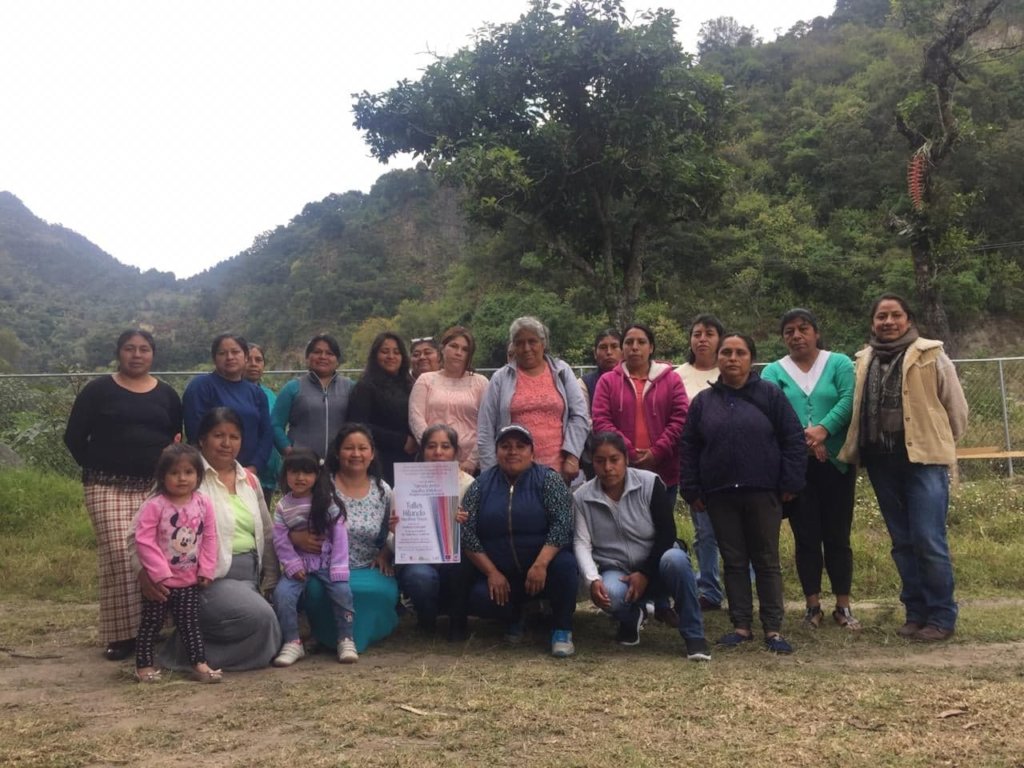By Eliza Brennan | Program Officer, Education
On September 7th, 2017, and then again on September 19th, the lives of millions of Mexicans were changed forever. The first earthquake, registering at 8.2-magnitude, severely damaged already-impoverished communities in Oaxaca and Chiapas. The nation was still reeling when Mexico suffered another devastating 7.1-magnitude earthquake on September 19th, claiming over 400 lives in the states of Mexico, Puebla, and Morelos. Thousands of people were displaced as homes and these communities’ economies were reduced to rubble.
Over a year after the earthquake, ICF is working alongside local community foundations is in the third stage of our disaster relief work, funding long-term projects that will enable the sustainable recovery of communities. These initiatives are 2-3 year strategies to rebuild social fabric and economies, change government policies, train communities in disaster preparedness, and promote community leadership that will mitigate damages when the next disaster strikes. Community foundations are not humanitarian relief organizations, but thanks to their broad, well-established networks of trusted partners ranging from grassroots community leaders to public officials and large corporations or private foundations, Community Foundation are in many ways the best-suited partners for long-term development and disaster relief work.
As we enter the second year of post-earthquake work, here are some highlights from the local Community Foundations in Puebla, Morelos and the state of Mexico that ICF is supporting:
The Participatory Diagnosis will allow the identification of social factors that intervene (for better or for worse) in the quality of the community’s social fabric; which will allow to define the strategic lines to work in a participatory manner, in the community, in the coming years to strengthen the social fabric. Though the earthquake was a great disaster, it brought an awakening of consciousness in the community, and demonstrated what a cohesive community can achieve.
Based on this complex problem, Fundación Comunidad redirected their Gender Equity Fund to boost the local economy and empower women to generate resources to support their families. In Morelos half of the population are women, and about 32% are heads of families. After the Sept.19 earthquake, many women were affected, lost their heritage and sources of employment. Fundacion Comunidad recognized the need to reactivate the local economy to help generate resilient and sustainable communities. Through the Gender Equity Fund, they have led a mapping of existing women entrepreneurs and market assessment; opened a public call for proposals from which eligible women-led projects are selected to receive seed-funding and participate in trainings to make them successful and sustainable, and assist them in identifying new funding sources.
As philanthropic hubs in their regions, Community Foundations are highly-effective long-term partners for disaster relief work, providing leadership, knowledge, and the ability to leverage networks and financial support for a broad range of needs – ensuring that your donations are having the maximum impact for those who need the most help!
Project reports on GlobalGiving are posted directly to globalgiving.org by Project Leaders as they are completed, generally every 3-4 months. To protect the integrity of these documents, GlobalGiving does not alter them; therefore you may find some language or formatting issues.
If you donate to this project or have donated to this project, you can receive an email when this project posts a report. You can also subscribe for reports without donating.
Support this important cause by creating a personalized fundraising page.
Start a Fundraiser